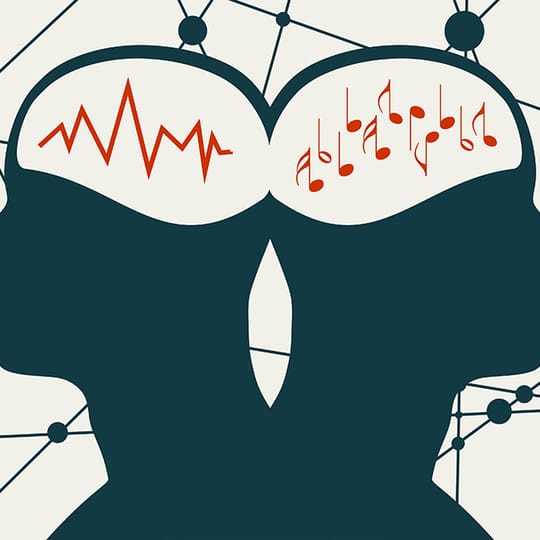
Tuning the Mind: Scientists Explore Sound as a Tool for Healing the Brain
By Keily Gupta
The role of music in positively influencing the autonomic nervous system (ANS) has garnered significant attention in recent years. This field of study has incredible potential to benefit patients, specifically those with neurological issues. Different studies focus on patients with epilepsy, comatose patients, OCD and PANDAS, and how listening to different types of music affects the brain.
The ANS is a complex network that controls involuntary processes, such as breathing and heart rate, and links the brain to internal organs and systems. Allison Eck’s article "How Music Resonates in the Brain," published in the Magazine of Harvard Medical School, conveys music’s unique ability to leave a deep emotional impression. Eck uses the example of listening to a performance in a concert hall, where the brain focuses on acoustic cues from the music, which affect the ANS. The valence of the music, which signals the emotion of the music, influences the ANS as well, showcasing the reason behind how and why directors effectively use different kinds of music to evoke powerful emotions in their audience.
The therapeutic potential of music can extend beyond emotional experiences. Studies have shown parallels between brain activity during listening to music and specific neurological conditions. One example of this is in people who have obsessive-compulsive disorder (OCD). OCD is when there are problems with the neuronal circuit. A dysfunctional neuronal “loop” is a circuit of neurons within the brain that does not function optimally. Patients with OCD have overactive neuronal circuits, particularly in the orbitofrontal cortex, which is a pattern also observed in the brain when listening to music. Their orbitofrontal cortex is running on overdrive, having a negative effect on the brain. However, when people listen to music, their orbitofrontal cortex also goes hyperactive. The patterns in brain activity while listening to music reveal how the brain handles complex cognitive processes. By analyzing these shared patterns, researchers are able to uncover more about the root causes of OCD and other disorders, increasing the potential for non-invasive interventions. In addition, there are also clinical implications of the effect of music.
An article from the Magazine of Harvard Medical School noted how “growing evidence suggests that listening to Mozart’s Sonata for Two Pianos in D Major can reduce the frequency of seizures in some people with epilepsy.”
This is a step forward in treating patients because it creates a non-invasive solution. If researchers or doctors are able to identify the exact type of music that can provoke a specific cognitive or emotional response, there could be progress towards healing disrupted brain function in various diseases.
Recent advancements in using music to figure out how it affects the brain include research about how nostalgic music creates more activity in the areas of the brain related to sound, memory and emotional feeling.
David Silbersweig, the Stanley Cobb Professor of Psychiatry at Harvard Medical School and chair emeritus of the Department of Psychiatry at Brigham and Women’s Hospital, is interested in expanding the role of music in terms of brain activity.
Now, neuroscientist Ed Large, director of the Music Dynamics Laboratory at UConn, and Dr. Psyche Loui, a professor at Northeastern University, work to discover how music may be able to alleviate early symptoms of Alzheimer’s by helping patients improve their memory.
“If we can do this much with what we know now, there is so much more we can do,” Large said.



